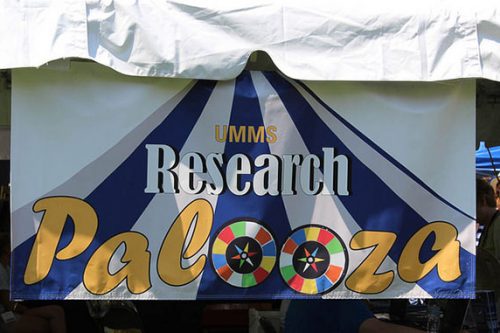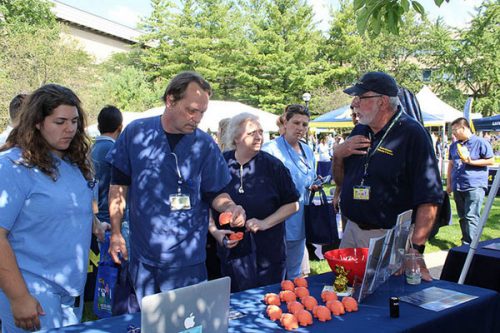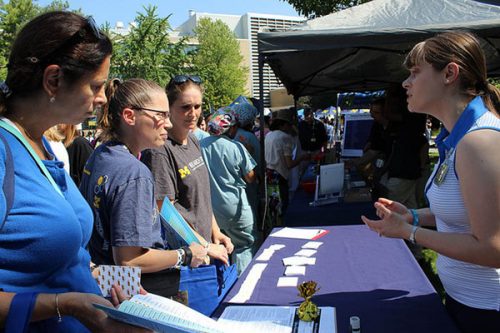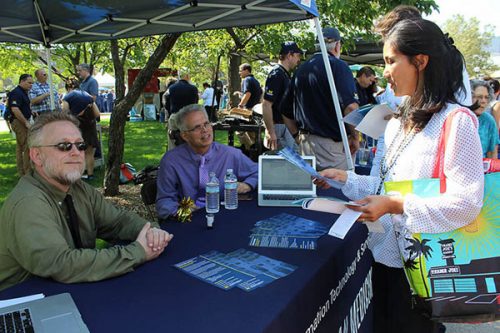Over 4,000 faculty, students, and staff attended this year’s Researchpalooza on August 16, 2017, many of whom visited the Health Information Technology & Services (HITS) booth.
The HITS Research Applications and Advanced Computing team shared a broad range of technological tools that enable research at the enterprise and individual levels with efficiency and security.
- Central biorepository—annotated, accredited biospecimen management
- Electronic Research Notebook—creates, manages, and accesses data and lab records across any platform
- SignNow—the new cloud-based, e-signature service pilot
- LabRATS—leverages enterprise services, aligns secure and appropriate solutions, and enables research
- MiChart Research—assists with all aspects of the electronic medical record including recruitment, ordering, and tip sheets
- Network Admission Control and Inventory Management—ensuring encrypted, protected, and secure wired and wireless networks
- OnCore Clinical Trials Management System—manage administrative, regulatory, nancial, and clinical functions
- Research Investigator Package—will soon offer a suite of research computation services
“Researchpalooza is always a great way to engage faculty and staff. We were happy to have so many participants stop by our booth! It’s interesting to learn what research projects are happening, and, in turn, share the new HITS-supported technology and services that can enable research,” said John Brussolo, interim senior director of HITS Research Applications & Advanced Computing division. “We’re grateful to hear from a lot of researchers about how much they rely on and appreciate HITS services. It is our pleasure to serve and support those who make significant contributions to the success of Michigan Medicine.”
Visit the HITS website for more information or call 734-936-8000. See more images from the event (photos by Aki Yao). Researchpalooza was sponsored by the U-M Medical School Office of Research.




